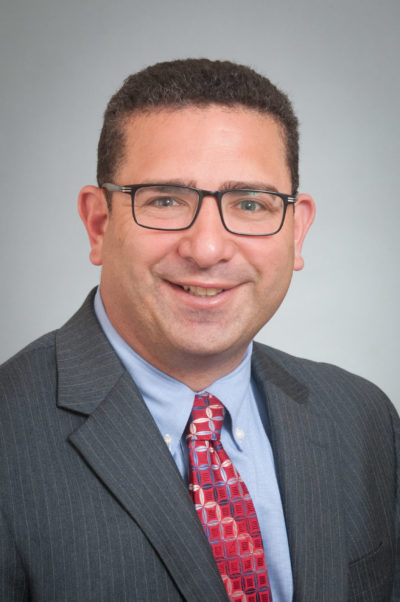Through eBrightHealth, five of Delaware’s leading health care systems have partnered over the past year to improve the quality of patient care through antibiotic stewardship, a success that extends far beyond the boundaries of any single organization.
The Choosing Wisely antibiotic stewardship initiative reminds clinicians, patients and families that not all infections, such as viral syndromes, warrant antibiotic treatment. The initiative also seeks to ensure that the right antibiotic is given for the right clinical condition, at the appropriate dose and duration. These best practices help to prevent overuse and misuse of antibiotics, ultimately improving patient outcomes and reducing the spread of infections caused by multi-drug-resistant organisms.
The eBrightHealth partners – Bayhealth, Beebe Healthcare, Christiana Care Health System, Nanticoke Health Services and Nemours/Alfred I. duPont Hospital for Children – came together to celebrate the program’s accomplishments on Aug. 8 at Bayhealth’s Kent General Hospital in Dover.
To further improve the state’s population health, one specific focus has been the reduction of inappropriate antibiotics for viral upper respiratory infections in the outpatient setting. In addition, hospital-based teams at the partnering health systems have reassessed the use of empiric antibiotics beyond 72 hours in hospitalized patients suspected of having an infection, said Robert Dressler, M.D., MBA, quality and safety officer, Christiana Care iLEAD, and team leader for the Choosing Wisely Initiative.
“What we’ve accomplished is impressive, and I think everyone we’ve partnered with should be extremely proud of the work they’ve done,” said Dr. Dressler, a key statewide leader of Choosing Wisely, an international program to improve the quality of care by avoiding unnecessary medical tests, treatments and procedures.
Representatives from each of the health systems reported that they increasingly track the correct use of antibiotics and educate hospital stakeholders and outpatient providers about the stewardship campaign. These combined efforts equate to fewer inappropriate uses of these medications across the state. In addition, there are ongoing efforts to educate patients on the difference between bacterial and viral infections, since the vast majority of upper respiratory infections are caused by viruses and antibiotics shouldn’t be used for these infections. The use of antibiotics in these clinical situations exposes the patient to the risks of side effects with no clinical benefits.
Team leaders say their success is the result of monthly teleconference calls to solve problems and share learnings. There also have been quarterly meetings to coordinate efforts across a broad group of interested parties, such as the Delaware Division of Public Health, Delaware Health Information Network, Long-term Care Facilities Association and Quality Insights, a non-profit that strives to improve the services of Medicare and Medicaid. In addition, the teams have formed working groups within their individual hospitals.
“This is wonderful to see,” said Gary Siegelman, M.D., senior vice president and chief medical officer, Bayhealth. “The work that’s been done to improve our population health through antibiotic stewardship is tremendously important. It’s beneficial to patients throughout Delaware and reflects what we ought to do as clinicians in being judicious in how we provide care.”
The findings are all the more significant when considering that at least 30 percent of antibiotics are unnecessarily prescribed in outpatient centers, according to the U.S. Centers for Disease Control and Prevention (CDC), which has launched a national campaign to improve stewardship. Overuse of antibiotics also is associated with risks for patients of adverse drug events, Clostridium difficile (C. diff) infection and the development of antibiotic resistance within acute-care hospitals and long-term care settings.
A growing body of evidence demonstrates that hospital-based programs dedicated to the improvement of antibiotic use, commonly referred to as antibiotic stewardship programs, can optimize the treatment of infections and reduce adverse events associated with antibiotic use, said Lauri Hicks, D.O., a medical epidemiologist and director of the CDC’s Office of Antibiotic Stewardship in the Division of Healthcare Quality Promotion.
Dr. Hicks spoke by Skype to the August gathering and praised the strategic partnership of eBrightHealth.
“I thank you for what you’re doing in your local area to make a difference,” Dr. Hicks said. “Partnerships such as yours are critical for implementation, evaluation and education around antibiotic stewardship.”
Christiana Care team leaders gave two reports at the Bayhealth meeting, one dealing with the progress in ambulatory clinics and a second dealing with hospital use of antibiotics. Christiana Care Infection Prevention Officer and Hospital Epidemiologist Marci Drees, M.D., MS, FACP, DTMH, and Infectious Disease Pharmacist Jillian Laude, Pharm. D, reported on success in the ambulatory clinics. At Christiana Care’s five Medical Aid Units and 14 primary care provider offices, total antibiotic use per 100 patient visits declined by 40 percent from December 2016 to June 2018, and the use of azithromycin declined by 86 percent. Efforts have included the following:
- CDC educational posters in offices and antibiotic information pamphlets for patients.
- Sharing of “clinical pearls” at monthly practice meetings.
- Surveying the Patient Advisory Council.
- Surveying providers, nurses and medical assistants to gain insights on their knowledge of antibiotic stewardship.
- Identifying a clinical champion in each office to advocate for greater awareness.
An overall champion in the medical aid units has been lead physician Hal P. Kramer, M.D., who has sought to standardize practice. He has carried out labor-intensive chart reviews and has given feedback to providers when he has noticed deviations from national guidelines. Dr. Kramer also was featured on the CDC’s Safe Healthcare Blog on how physicians can drive the needle forward in their own antibiotic stewardship programs within ambulatory care centers.
Reporting on inpatient efforts at Christiana Care was Nicole Harrington, Pharm. D., BCPS, a clinical pharmacy specialist, Infectious Disease. Using antibiotic monitoring protocols from the U.S. Agency for Healthcare Research and Quality, the inpatient team worked on data collection and analysis to create a baseline and to observe changes in antibiotic use.
By working on best-practice education and engaging key staff, one goal was to decrease utilization by 10 percent on two units – surgical intensive care and a geriatric unit (6A). “Overall, we were able to see a decrease in fluoroquinolone use on both of these patient care units,” said Harrington, adding that even before beginning the project Christiana Care was performing better than the national benchmarks given for antibiotic usage.
One aspect of future education will deal with illnesses, such as colitis, that can mimic infectious diseases and do not warrant the use of antibiotics, she said. The inpatient effort also will re-engage key stakeholders, target provider education for new residents, explore expanding data-gathering methodology to other units and present project findings during surgery grand rounds.
At Bayhealth, Clinical Pharmacist Janelle Caruano, Pharm.D., said the stewardship team instituted an antibiotic-use study in the intensive care units. They created a best-practice alert in the electronic health record for a 72-hour time-out with piperacillin/tazobactam and ceftriaxone, displayed informational posters in the Emergency Department’s fast-track rooms and patient bathrooms, and educated primary care doctors about decreasing inappropriate antibiotic use for upper respiratory infections. Early results show a decrease in C. diff infections at the Kent Campus and a 13.7 percent decrease in the inappropriate use of targeted antibiotics at Milford Memorial.
At Beebe Healthcare, Infection Prevention Manager Elizabeth A. Richardson, MSN, MPH, RN, said there have been successes in educating, engaging and motivating hospital staff. Their next goals include expanding measurements of antibiotic utilization and strengthening provider engagement. Their numerous stewardship approaches include identifying provider champions, holding monthly clinical webinars, use of antibiotic safety programs from the U.S. Agency for Healthcare Research and Quality, and Choosing Wisely commitment posters in hospital and outpatient settings. Beebe data collection shows that C. diff infections have meaningfully declined, and there has been a significant reduction in antibiotic use since January.
Nanticoke Health Services reported on efforts to educate outpatient Emergency Department providers and achieve a 10 percent reduction in upper respiratory usage. Targeted initiatives have included team members sharing information with providers face-to-face, an increase in antibiotic education for the public at community events and the launch of an integrated electronic health record that incorporates the outpatient network. Recent data show that physician assistants, nurse practitioners and physicians have all decreased the number of antibiotic medications prescribed.
At Nemours/Alfred I. duPont Hospital for Children, Craig Shapiro, M.D., pediatric infectious disease specialist, and Shannon Chan, Pharm.D., Antimicrobial Stewardship pharmacist, co-directors of the Antimicrobial Stewardship program, reported on their system’s longstanding inpatient program and the more recent outpatient initiative to reduce variation in prescribing patterns in primary care practices, the emergency department and Nemours’ urgent care center. To advance stewardship, Nemours developed clinical pathways for specific diseases (such as strep pharyngitis, upper respiratory tract infection and sinusitis), offered provider education and developed clinical decision supports within the electronic health record. Additionally, the stewardship team has employed family and patient education using both local (Kidshealth.org) and CDC resources.
“We also identified antimicrobial stewardship champions within our hospital units and are collaborating with them on instituting antibiotic time-outs,” said Dr. Shapiro.
Michael Salvatore, M.D., physician advisor at Beebe Healthcare, said he was impressed with the excellence of Choosing Wisely and the leadership of Dr. Dressler on eBrightHealth’s first improvement effort.
“eBrightHealth has bridged the administrative and clinical worlds,” said Dr. Salvatore. “And we’ve found that when you are seeking to make change in health care in Delaware, it is very effective to say that you have this statewide organization – eBrightHealth — behind you.”




